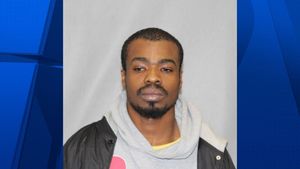Tensions are running high as the murder trial of Senzo Meyiwa, the former captain of South Africa's national football team, proceeds at the Pretoria High Court. The court has become the center of heated legal battles, especially over the admissibility of key evidence connected to the case, igniting passionate discussions about the state's legal processes.
On September 18, 2024, Judge Ratha Mokgoatlheng sternly challenged defense attorney Adv. Charles Mnisi over the legal status of a pivotal Section 212 statement presented as evidence. The judge urged, “If you think it is not a legal document, you can take me on appeal. If you think I am wrong, take me on appeal.” This pronouncement highlights the contentious atmosphere enveloping the proceedings as the legal interpretation of evidence is fiercely contested.
The defense has questioned the admissibility of the Section 212 statement, asserting it does not meet the requisite standards for forensic evidence. Despite these assertions, Judge Mokgoatlheng defended the document's legitimacy, underscoring its role as a fundamental component of the case against the accused. Legal experts caution, though, about the ramifications of potential appeals. These could considerably delay the trial process, which has already faced significant interruptions. The Meyiwa case has garnered immense public interest, not just for its celebrity factor but for its broader implications on the judiciary's transparency and efficiency.
After several weeks of delay, the trial resumed with key testimonies expected. The focus now shifts to Mnisi, who is representing Muzi Sibiya and Mthobisi Mncube, both accused of involvement in Meyiwa's murder. Following the death of Sibiya's previous attorney due to illness, Mnisi requested additional time to prepare for the cross-examination of the lead investigator, Bongani Gininda, who has been called as the state's last witness.
To give some background, Meyiwa was tragically shot on October 26, 2014, during what is believed to have been a robbery at his girlfriend's home, igniting outrage and calls for justice from fans and the broader public alike. The case went cold for several years until arrests were made, prompting renewed focus on the murder trial. Now, with significant interest from media and supporters of the late footballer, every snippet of information and courtroom drama is watched closely.
During the trial, Judge Mokgoatlheng's firm decisions on evidence are being monitored closely. The tension between the defense's legal strategies and the prosecution's evidence is palpable, contributing to the courtroom drama as Mnisi prepares to cross-examine Gininda. The outcome of Sibiya's and Mncube's trial holds potential repercussions not only for the families involved but also for the public's faith in the legal system.
Critics question how effectively the South African judicial system can uphold justice, especially for high-profile murder cases marked by years of delays and procedural battles. The enduring public support for Meyiwa is underscored by advocates insisting on accountability and pressing the judiciary to safeguard the integrity of the trial.
The unique challenges of the trial are compounded by the emotional weight of Meyiwa's legacy within South African sports culture. Supporters and media commentators continue to engage passionately with the proceedings, often juxtaposing the fight for justice against systemic challenges faced by the legal system.
The next phase of the trial on February 3, 2025, after another schedule change, remains pivotal for bringing clarity and resolution. What's certain is the continued demand for transparency and expedited legal proceedings from all corners as justice for Senzo Meyiwa becomes not just about the trial, but entails broader reflections on South Africa’s commitment to justice.



